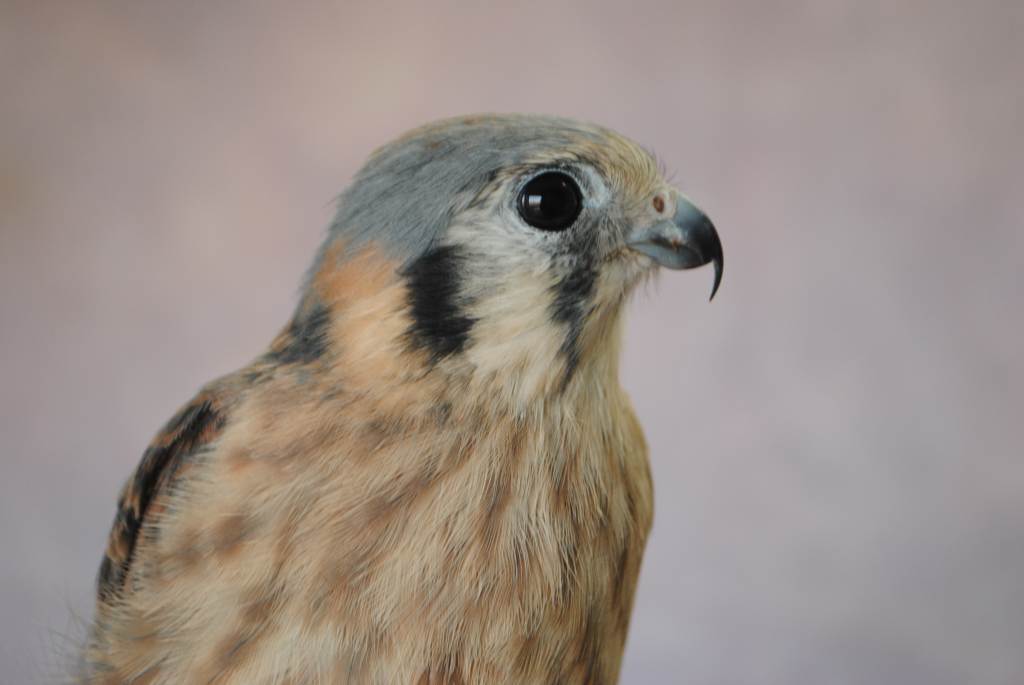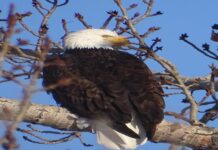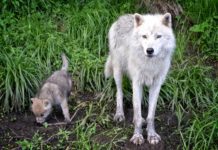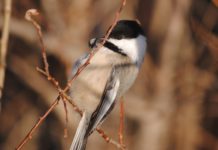liding to the left and right, the American Kestrel keeps a sharp eye on the earth below for flickering blades of grass or the rustling of bushes. A member of the raptor family, the American Kestrel is easy to identify because it is the smallest of the North American falcons and the most colourful. Male and female Kestrels are dressed in a rusty red but only the males are garnished with a brilliant slate blue on their head and wings. They are easily spotted in open grassland areas, such as meadows and farmer’s fields. They also can be seen in city areas and suburbs.

Fun Facts:
- These raptors rely on abandoned Woodpecker holes, tree hollows and other empty cavities that are found in the environment to make their home.
- Your backyard could become a suitable home for the Kestrel but it won’t be in a regular birdhouse. A nesting box, nailed to a tree, high above the yard and away from sources of noise could provide a suitable home for a feathered family.
- They may repay you by keeping pesky rodents out of your yard
- Like many raptors, the American Kestrel hunts for insects such as grasshoppers, beetles and spiders as well as small vertebrate prey such as mice, voles, shrews, songbirds and occasionally, frogs, snakes and small lizards.
- Some brave Kestrels have been spotted preying on larger creatures, such as red squirrels.
- One characteristic that gives the American Kestrel the upper hand on small prey is their ability to see ultraviolet light. This feature gives them the power to see urine trails created by small rodents and other creatures, leading them to their next meal.
- This raptor can also be the hunted: as the smallest falcon, they become easy prey to other raptors, such as Barn Owls, Goshawks and Red-tailed Hawks. Large reptiles such as rat snakes and corn snakes will also take Kestrels as prey.
When you are out on your next walk, keep an eye to the sky, you may just see the Kestrel gliding through the air or perched on a light post or telephone post. If you come across an injured American Kestrel, or any other wildlife in distress, please contact Calgary Wildlife Rehabilitation Society wildlife hotline at 403-239-2488.










